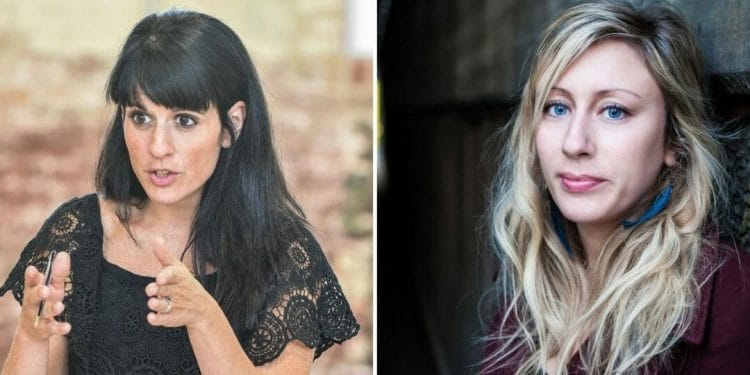Katie Posner and Charlotte Bennett, Artistic Directors of Paines Plough, chat to us about The Place I Call Home Digital Festival.
The digital festival of new writing features three brand-new bilingual international collaborations, commissioned in March at the start of lockdown to connect writers and theatres across Europe during a time of isolation. The plays are journeys, delivered via multiple mediums – Zoom, email, WhatsApp and even post.
More information on The Place I Call Home Digital Festival can be found here.
You’re currently running The Place I Call Home Festival, what can you tell us about it?
The Place I Call Home is a digital festival of new work and opportunity for audiences to access all from the comfort of their own home. It is headlined by our three international collaborations; short plays written across languages over lockdown delivered to you over WhatsApp, email or in the post. Supported by a workshop programme for creatives including producer workshops, open auditions, panel discussions and Q and A’s. The whole idea behind the festival is to play with what digital theatre can be and provide hope for audiences and artists in these times by facilitating lots of different ways for them to connect with us as a company and with new stories.
What inspired you to create work when the majority of theatres remain closed?
It is in our DNA as a company to find new ways of doing things; new stories to tell and new ways to tell them. As a national new writing company, we have built relationships with audiences around the country for the last 46 years and we have not been able to physically connect with them for almost an entire year… we had to find a new way to connect and The Place I Call Home Festival is part of that. As a company we are able to be more nimble and responsive to adapting; we don’t have the weight of a building around our necks to maintain during this time and it has always been our virtue to pop up in different spaces so we wanted to maintain this energy of our work even in a global pandemic! It is also our duty to support and employ as many freelancers as we can during this time; they are the most vulnerable in our industry and continuing to create work has enabled us to do this including commissioning over 60 writers since March to create digital work.
It features international collaborations; do you think the pandemic and everyone’s reliance on technology actually made it easier to collaborate internationally?
Absolutely! We had spoken about working internationally more at Paines Plough and then during lockdown it felt easier than ever to make those connections digitally. We have all had to adapt to this new way of working and so rehearsing over zoom with actors in Germany whilst you are rehearsing your UK cast over zoom at the same time means there is no compromise on process; everyone is creating from the same place given the restrictions.
Some of the productions happen over WhatsApp and even by post, why did you want to avoid some of the more ubiquitous digital platforms we’ve seen in the last few months?
Definitely. We wanted to experiment with how digital work can still feel live and active to the audience. For us, opening a laptop at the end of a day on a laptop to find the link to take us to the show to watch felt like hard work – we wanted to try and bring digital shows to audiences rather than ask audiences to come to us. The directness of each of the plays is what makes them work. And we also kept using the term ‘playful’ – how do we create a sense of play in digital theatre? That more direct interaction with audiences allows us to do that.
What have been the challenges of pulling this festival together?
Not really knowing what audience’s appetite will be for digital theatre by the time it came round. Filming A Brief History of Struggle by Dipo Baruwa Etti and Calle Fuhr was complex as it is a series of duologues but we were in peak lockdown so they were all filmed separately then edited together; we think they actually look really great but ensuring the actors were speaking the same rhythm was complicated! Also, the digital theatre market is so saturated right now we have had to work hard to stand out; we hope that with the uniqueness of what the plays deliver this has happened.
What do you hope will happen next with the festival?
It would be brilliant to see lots of different people engage with the plays and workshops enough for some of them to be extended or re-run; the great thing about digital is you can pick it back up and roll out again if the interest is there. But above all, we hope the festival gives people some light, hope and fun in a time where that can feel like quite the opposite.



















